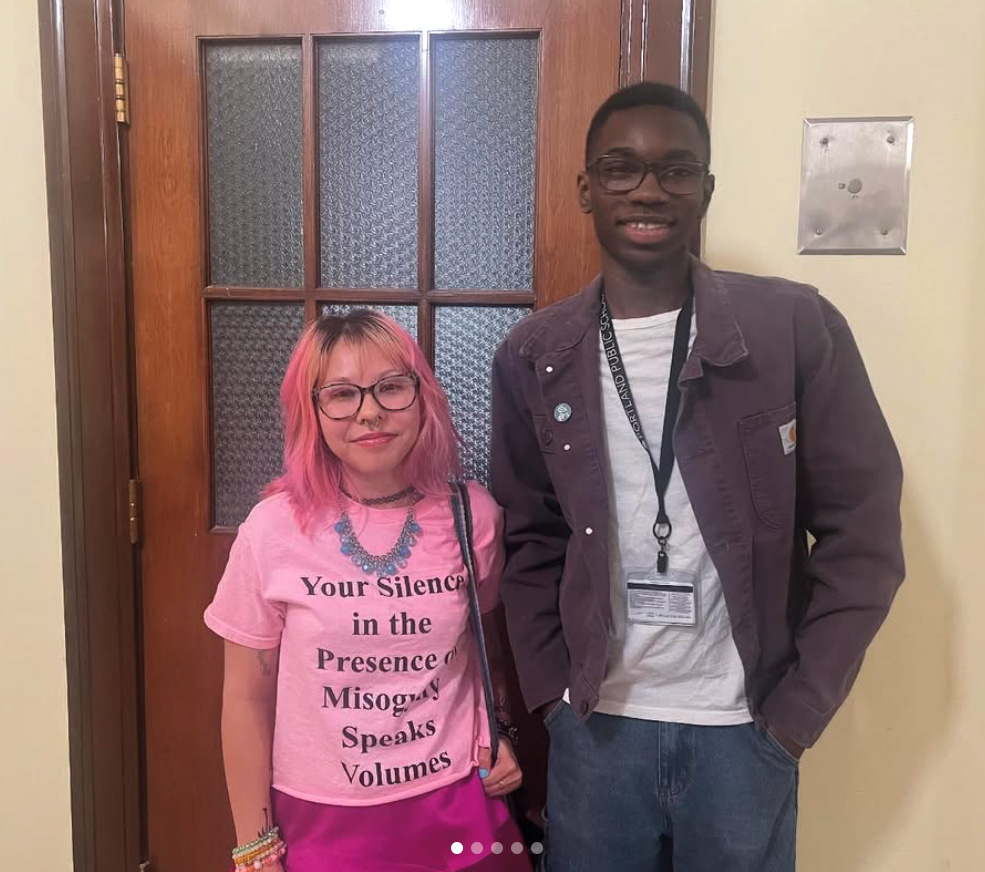Cleveland Reacts to Leaving the Paris Climate Agreement
June 9, 2017
On Thursday June 1, 2017, President Trump announced that the United States will leave the Paris climate agreement, a historic coalition aimed at reducing carbon emissions and slowing global warming worldwide. Trump cited the need to support American workers and reject the “unfair” standards that the agreement placed on the U.S. despite the U.S.’s position as the second top-polluter in the world after China.
“I think that it really proves that he does not have the best interest for our country in mind when making decisions,” commented junior Kayla Albright-Deeley. “I think this will be extremely detrimental since the U.S. won’t be seen as the role model it was.”
In December of 2015, representatives from 195 countries met and made the commitment to reduce emissions in their countries as well as support developing countries in sustainability. Through the agreement, wealthier countries such as the U.S. (known as MEDC’s, or more economically developed countries) pledged to give money to less wealthy countries (or LEDC’s) so that they could afford to invest in sustainable technology.
“The U.S. alone was supposed to give $3 billion dollars into this green pledge to help less economically developed countries invest in more sustainable technology, and switch to renewables,” informed Kathleen Fuller, a biology and environmental sciences teacher at Cleveland.
The goal of the agreement is to prevent global average temperatures from rising more than 2 degrees celsius (3.6 degrees fahrenheit) above preindustrial levels. Each country made their own goals for emission standards and began the process of ratifying them in their governments. There is no penalty for a country not reaching their goals.
Under the Obama administration, the U.S. promised to reduce emissions by 26 to 28 percent by 2025. However the commitment was not ratified by the senate, enabling Trump to withdraw from the agreement, a process that could take up to four years to officially complete. If the U.S. is successful, the country would join Nicaragua and Syria as the only countries who are not part of the Paris agreement.
“We are now one of three countries not involved on the accord,” commented junior Rosemary Allison-Brown. “We are one of the biggest producers of pollution, and it’s appalling to me that the President of the United States (intended to support and represent the American people) has the audacity and ignorance to look past that.”
The upset doesn’t stop at Cleveland either. Several foreign leaders have criticized Trump’s decision, including the recently elected president of France, Emmanuel Macron, who called the decision a “mistake” and urged Trump to “make our planet great again.” Back in the US, Obama released a statement, commenting, “The nations that remain in the Paris Agreement will be the nations that reap the benefits in jobs and industries created. I believe the United States of America should be at the front of the pack.”
Additionally, over 35 states, including California, Washington, and New York promised to uphold the terms of the accord, whether our president was leading the way or not.











